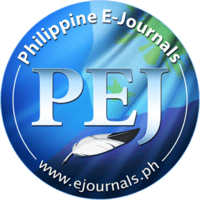Publication Policies
Publication
Following approval, the paper will go through copy-editing, author proofing, final edits, pagination checking, and publication in the journal, both online and in print.
Publication Ethics
The editors of this journal use a rigorous peer-review system and adhere to strong ethical values and standards to ensure that only high-quality research works are accepted. Plagiarism, falsification, fabrication, unethical co-authorship practices, and other forms of research misconduct are taken very seriously. The editors adopt a zero-tolerance approach in such cases.
Researchers who wish to publish in QCU Journals must follow these guidelines:
- Any potential conflict of interest must be disclosed.
- Authors must truthfully describe research results and provide an objective analysis and interpretation of findings.
- Data and methods must be explained in sufficient detail to allow replication.
- Simultaneous submission to multiple journals is not allowed.
- Republishing previously published works, even in another language, is not allowed.
- Authors must notify the journal immediately if errors or inconsistencies are discovered after publication.
- An erratum will be published if serious errors could jeopardize the researchers’ work or reputation.
- A retraction must be signed if findings are revealed to be incorrect.
- Manuscripts should not contain previously published information. If previously published figures or images are used, permission from the copyright holder must be obtained for publication under the Creative Commons CC BY 4.0 license.
- Plagiarism, fabrication, falsification of data, image manipulation, and other misconduct are not tolerated.
- If misconduct is discovered after publication, the editorial board may issue a correction or retract the paper.
Editors will investigate all claims of research misconduct and take proper action, including correction or retraction, when there is proof of misconduct.
Citation Policy
- Authors should ensure that borrowed information is properly referenced, with permission obtained from the original authors when necessary.
- Excessive self-citation must be avoided.
- Citing friends’ or peers’ publications preferentially should be avoided.
- Direct quotations must be enclosed in quotation marks and accompanied by proper citations.
Copyright and Licensing
Authors retain copyright for all works published in the QCU Journals. Articles are published under the Creative Commons CC BY 4.0 license, allowing anyone to download, read, reuse, and quote them, provided the original version is properly referenced. This ensures wide visibility of the work while guaranteeing appropriate credit for the authors.
Institutional Repository
All articles published in the QCU Journals will be archived in the institutional repository system and database of Quezon City University.
Data Privacy, Intellectual Property, and Anti-Piracy
All articles published in the QCU Journals must conform to relevant Philippine laws and regulations, including:
- Data Privacy Act of 2012
- Cybercrime Prevention Act of 2012
- Intellectual Property Code
Plagiarism Policy
All submitted manuscripts are checked for plagiarism using AI detection tools, with a maximum allowable similarity index of 10–15%; exceeding this limit may result in rejection or a request for revision. Additionally, AI-generated content must not exceed 20% of the total text, and manuscripts violating this rule will be flagged for review. These measures ensure the originality and academic integrity of published work.
AI Policy
-
Scope and Purpose
This policy governs the use of artificial intelligence (AI) tools and technologies in the research, writing, review, and editorial processes for manuscripts submitted to QCU Journals. It ensures academic integrity, transparency, and ethical practices in scholarly publishing. As AI tools become common in academic work, this policy provides guidelines for their responsible use. It will be reviewed periodically to keep pace with developments in AI and their impact on research and publication ethics.
-
Guidelines for Authors
2.1. Use of AI in Research
-
Authors may use AI tools for data processing, simulation, or analysis, provided such use is clearly stated in the methodology section.
-
Authors must describe the limitations, assumptions, and possible biases of the AI tools to maintain research transparency.
2.2. Use of AI in Writing
-
Any AI use in drafting, editing, or proofreading (e.g., ChatGPT, Grammarly, DeepL) must be disclosed in the manuscript.
-
AI tools cannot replace the authors’ intellectual input. Authors are responsible for verifying and validating all AI-assisted content.
-
The final manuscript must reflect the authors’ own understanding and analysis.
2.3. Authorship and AI
-
AI tools or systems cannot be listed as authors.
-
Only individuals who made substantial intellectual contributions qualify for authorship.
-
Authors bear full responsibility for any manuscript content influenced by AI.
2.4. Ethical Considerations
-
Authors must ensure that AI use aligns with research ethics and does not violate privacy, consent, or institutional standards.
-
AI tools must not be used for data fabrication, falsification, or manipulation. Any violation constitutes research misconduct.
2.5. Referencing AI-Generated Texts
If AI tools (e.g., ChatGPT) are used in text generation, their contribution must be cited in the manuscript and reference list using this format:
APA Style:
OpenAI. (Year). ChatGPT (Version). Retrieved from [website URL] (Accessed: [date]).
-
Guidelines for Reviewers
3.1. Use of AI in Peer Review
-
Reviewers may use AI tools for grammar checking or summarization, but not for forming critical judgments or recommendations.
-
Any AI use during review must be disclosed to the editorial team.
3.2. Responsibilities and Human Oversight
-
Peer review must remain a human-led process.
-
Reviewers should ensure AI-assisted insights do not compromise accuracy or impartiality.
-
Guidelines for Editors
4.1. AI-Assisted Editorial Processes
-
Editors may use AI tools for administrative or technical tasks, such as plagiarism detection or language review.
-
Final editorial decisions must always be made by human editors.
4.2. Disclosure and Transparency
-
The editorial team will disclose any significant AI use in editorial workflows to maintain transparency and accountability.
-
Transparency and Disclosure
All stakeholders (authors, reviewers, editors) must disclose the AI tools used, their purpose, and their role in research or editorial processes.
Failure to disclose substantial AI use may lead to corrective measures, including manuscript rejection, article retraction, or suspension of editorial/reviewer privileges.
-
Integrity and Accountability
QCU Journals reserves the right to:
-
Request clarification or evidence of AI use.
-
Investigate potential misuse or undisclosed AI involvement.
-
Retract publications found to involve unethical or undisclosed AI use.
-
Continuous Review
This policy will be periodically updated as AI technologies evolve. Feedback from the academic community is encouraged to help improve this policy and uphold the integrity of QCU Journals’ publication standards.
Open Access Policy
-
Principle of Open Access
-
QCU Journals embraces the principle that scholarly research should be freely and immediately accessible to all.
-
Price and subscription barriers are removed so that anyone—scholars, practitioners, students, or the general public—can read, download, and share published content.
-
-
Licensing Terms
-
Articles are licensed under the Creative Commons Attribution (CC BY 4.0) license upon acceptance.
-
Users may copy, distribute, adapt, or build upon the work—even commercially—as long as proper attribution is given to the original authors and the journal.
-
-
Author Rights and Responsibilities
-
Retention of Copyright: Authors retain copyright over their work.
-
Granted Rights: Authors grant QCU Journals the non-exclusive right to publish and distribute their work under the CC BY 4.0 terms.
-
Third-Party Materials: Authors are responsible for securing permissions for copyrighted materials (figures, tables, text excerpts, etc.), crediting the source, and confirming permission to reuse.
-
-
Accessibility and Re-Use
-
Immediate Access: Full texts and supplementary materials are made available online without embargo.
-
No Permission Required: Users may reuse any part of the article—including graphics, data, or supplementary files—if proper citation is maintained.
-
Text Mining & Indexing: Users may text-mine, index, and link the material to support research discoverability and digital scholarship.
-
-
Correction and Complaints Handling
-
Errata and Retractions: QCU Journals will follow established protocols to issue corrections, retract, or replace content if errors are identified post-publication.
-
Copyright Concerns: Any claim of copyright infringement should be directed to the Editor. The Journal will address such claims promptly and fairly, with transparent communication.
-
-
Benefits of Open Access for Authors
-
Wider Reach & Impact: Open Access increases visibility, readership, and citation potential, especially benefiting scholars in developing contexts.
-
Greater Collaboration: Freely accessible research fosters interdisciplinary exchange and innovation.
-
Alignment with Institutional Values: Supports QCU’s mission to advance knowledge, uphold ethics, enhance quality, foster collaboration, and ensure universality in dissemination (E-QCU principles).
-
Publication Charges
-
-
QCU Journals provides completely free and open access publishing.
-
No submission fees, article processing charges (APCs), or publication fees are required.
-
Readers can freely access, download, and share articles without cost.
-
This ensures that financial barriers do not prevent the dissemination or accessibility of knowledge, in line with QCU’s mission to foster ethical, high-quality, collaborative, and universal research.
-




